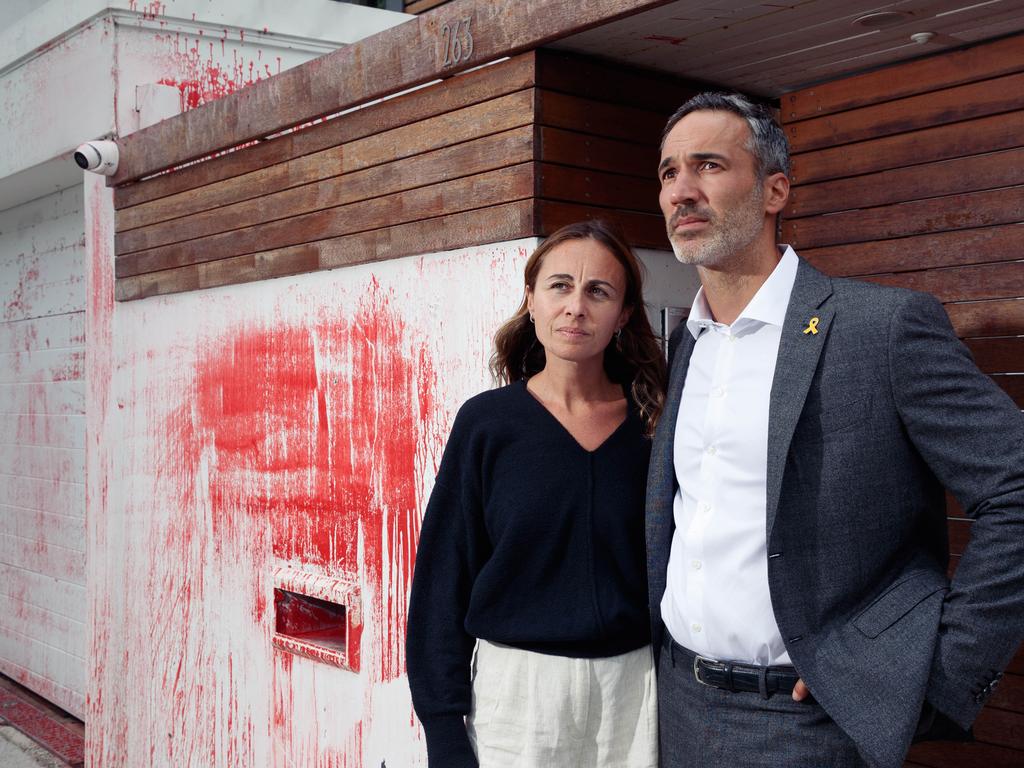Finally, a done deal on road to peace in Gaza
Israel’s cabinet is set to endorse the Gaza ceasefire plan this weekend after a last-minute delay threatened to upend the path to a permanent end of hostilities after 15 months of brutal conflict.

Israel’s cabinet is set to endorse the Gaza ceasefire plan this weekend after a last-minute delay threatened to upend the path to a permanent end of hostilities after 15 months of brutal conflict.
The implementation of the ceasefire was delayed after Israeli Prime Minister Benjamin Netanyahu accused Hamas of reneging on its terms, with his office warning of a “last-minute crisis” and arguing that cabinet would not ratify the deal until Hamas “accepted all elements of the agreement”.
Senior Hamas officials rejected the comments as baseless and argued the terrorist group was standing by the deal, with the Biden administration also expressing confidence it would proceed.
The setback revealed the fragile nature of the three-phase agreement announced on Thursday that creates an initial 42-day truce during which the outstanding differences between Israel and Hamas must be resolved as part of the negotiations for a “permanent end to the war”.
The Times of Israel reported the dispute was over the identities of the Palestinian security prisoners slated for release in exchange for the hostages, but the mediators meeting in Qatar were able to resolve the holdup.
Mr Netanyahu’s office issued a statement on Friday (AEDT) declaring that the Israeli leader was “informed by the negotiating team that agreements have been reached on a deal to release the hostages”.
More than 1000 Palestinian security prisoners will be released in return for an initial 33 hostages during the first phase of the ceasefire. The remaining hostages – thought to number more than 60 – would be released only if both sides reached agreement on a way forward.
An Israeli security cabinet meeting was expected to sign the agreement late on Friday local time, before the full cabinet gives the deal a green light on Saturday night – an outcome that would have hostages being released by Monday (Tuesday AEDT).
This is the same day that US president-elect Donald Trump takes office and the deadline he set for a deal to be done before there would be “hell to pay” if the conflict was still going.
Mr Trump argued that the involvement of his Middle East envoy, Steve Witkoff, in the negotiations for the ceasefire was decisive in securing a result.
He told podcast host Dan Bongino that “we changed the course of it, and we changed it fast. And frankly it better be done before I take the oath of office.”
Announcing the deal on Thursday, outgoing US President Joe Biden said he was “confident” the ceasefire would hold, but noted its implementation would be left in the hands of the incoming Trump administration.
“The past few days we’ve been speaking as one team,” he said.
Mr Biden said there was a new chance for the integration of Israel into the broader Middle East region along with “all its Arab neighbours, including Saudi Arabia”.
But he made clear on Friday that Israel would need to change its approach to Palestine.
“The idea that Israel is going to be able to sustain itself for the long term without accommodating the Palestinian question … (is) not going to happen,” Mr Biden told MSNBC. “I kept reminding my friend (Mr Netanyahu) … that he has to find a way to accommodate the legitimate concerns of a large group of people called Palestinians, who have no place to live independently.”
In Israel, the ceasefire agreement has prompted major pushback from some quarters.
Far-right National Security Minister Itamar Ben Gvir said he and his party colleagues would quit the cabinet if the deal was approved but made clear they would not leave the country’s ruling coalition.
One of the key issues during the talks in Doha was Israel’s presence in the Philadelphi Corridor along the Gaza-Eygpt border, with officials from the Jewish state saying they wanted their forces to stay longer.
The text of the agreement calls on Israel to gradually reduce its forces in the area in the first of the deal’s three phases.
The current conflict began on October 7, 2023, when Hamas terrorists attacked Israel, killing 1200 people and taking 251 hostages. The Jewish state mounted an intense military response aimed at eliminating the terrorist group and weakening Tehran’s regional influence in response.
The Hamas-run health ministry in Gaza says the Israeli military campaign has claimed more than 46,000 Palestinian lives, although this figure does not distinguish between civilians and combatants.







To join the conversation, please log in. Don't have an account? Register
Join the conversation, you are commenting as Logout